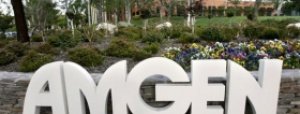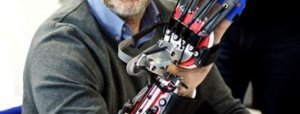The deal on the drug known as trastuzumab deruxtecan sent shares in Japan’s Daiichi soaring 16 percent, its daily limit, to a record high on Friday. Daiichi’s stock has climbed 45 percent this year on optimism about the treatment.
Britain’s AstraZeneca plans to use some of the proceeds of a $3.5 billion share issue to fund the deal. Its shares fell as much as 6 percent.
Under the deal, AstraZeneca will make an upfront payment of $1.35 billion to Daiichi. They will share development and commercialization costs for the drug worldwide, with Daiichi retaining exclusive rights in Japan.
Daiichi’s drug, also known as DS-8201, targets the HER2 protein, a major trigger of uncontrolled cell growth in about 20 percent of breast cancers, where Roche has been a pioneer with its aging $7 billion-a-year best-seller Herceptin.
DS-8201 is being tested in patient groups that would typically receive Roche’s Kadcyla or Perjeta, products which the Swiss drugmaker hopes will offset a sales decline in Herceptin after loss of patent protection.
AstraZeneca and its partner will also target patients with low levels of HER2, a much larger breast cancer subgroup with poor treatment options and the drug’s biggest market opportunity, as well as certain lung and gastric tumors.
“Over the last four years oncology has been focused on pipeline revitalization ... We feel that we have re-emerged and now our sights shift towards true leadership in the oncology space,” said Dave Fredrickson, AstraZeneca’s head of oncology.
The deal is a big bet on Japanese research by AstraZeneca Chief Executive Pascal Soriot, who is seeking to replicate recent success in fast growing cancer drugs Tagrisso, Lynparza and Imfinzi.
Among the wide range DS-8201 patient trials underway, five are at a final stage where results may be used in requests for marketing approval.
“$1.35 billion upfront plus significant future milestones likely necessitates blockbuster peak sales to deliver a return,” said Jefferies analyst Peter Welford, using the industry term for drugs with more than $1 billion in annual sales.
Credit Suisse analysts said they saw an 80 percent chance of DS-8201 achieving that status.
“The upfront payment is particularly large. It’s a sign that AstraZeneca assumes the drug will become mainstream in the next generation,” said Takashi Akahane, a senior analyst at Tokai Tokyo Research Center.
The two drugmakers have a long-standing relationship which includes a 2015 agreement to jointly commercialize constipation drug Movantik in the United States.
DS-8201 is part of a drug class called antibody-drug conjugates (ADC), which link powerful cell toxins to antibodies that cling to cancer cells, sparing the healthy cells that are damaged during conventional chemotherapy treatments.
Roche’s Kadcyla, also an ADC, won U.S. Food and Drug Administration (FDA) approval in 2013.
Daiichi is expected to book sales for the drug in the United States, certain countries in Europe and some other markets where it has affiliates.
AstraZeneca is expected to book sales in all other markets worldwide, including China, Australia, Canada and Russia.
Ludwig Burger, Sam Nussey, Takashi Umekawa
